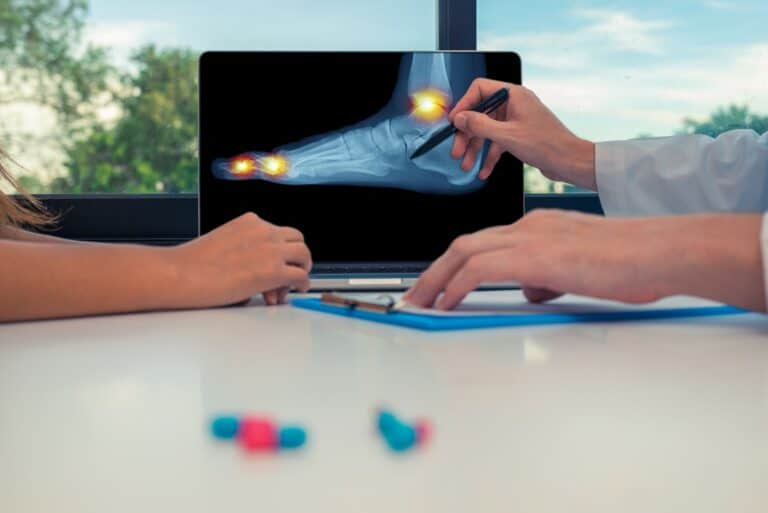Why do you need my medical records?
If you have recently suffered a serious injury, making the first steps to contact a solicitor may be something that has taken weeks or even months for you to summon the courage to do so.
In that first phone call or meeting with a solicitor there will be reams of information passed onto you and you will be required in turn to provide, what may seem to be, a lot of information to your solicitor. It can understandably be extremely overwhelming. Serious injuries can have a devastating effect on yours and your family’s lives and the effects of course are often far-reaching to all areas of your life.
Your solicitor will ask you questions about your medical history such as whether you were suffering from any health conditions at the time of the accident and whether you have done so at any time in the past. We understand that it can be difficult to remember all details and dates but in order for your solicitor to build a case for you, as much information as possible is required. So although your solicitor’s questions may seem probing, they should be answered as fully as possible.
Once you have formally instructed your solicitor they will ask you to sign a form of authority in order to access your medical notes. This may feel somewhat intrusive but there are a number of reasons why your solicitor will need to see all your medical records:
- They provide vital information as to your diagnosis and treatment so far;
- They will be supplied to medical experts instructed by your solicitor to prepare reports, which explore the extent of your injuries, your prognosis and whether you may require any further treatment and the cost of this;
- They provide insight as to whether you have any pre-existing medical conditions or vulnerabilities that your solicitor and medical experts will need to be aware of;
- They can also sometimes contain reference to the circumstances of your accident which supports your case.
Pre-existing conditions
If you have pre-existing conditions that are affected by an accident this will be important when considering treatment and how to value your claim. If your injuries have aggravated a previous condition or caused your pre-existing health condition to deteriorate this can have a devastating effect on your overall health and prognosis. If there is a direct link to the injuries you have suffered and the deterioration of your pre-existing medical condition, this is something that your solicitor will aim to recover compensation for on your behalf.
So how do we best go about establishing that direct link?
Medical Experts
Your solicitor will need to instruct independent medical experts to comment on your injuries and whether there is a link between your injuries and the deterioration in your pre-existing medical condition. The medical experts will require a copy of your medical records in order to properly explore this in their reports in conjunction with their assessment of your injuries. The more information the medical experts have in preparation of the reports the more accurately and thoroughly they will be able to deal with all aspects of your injuries.
What can I expect in my medical appointment?
The role of a medical expert is to comment on your injuries and prognosis. Your solicitor will have selected medical experts who are experts in their specialist fields and are best placed to comment on your specific injuries.
Dependant on your injuries the medical experts will physically or psychologically examine you, and may ask you to undertake tests, which allows them to better understand the extent of your injuries. The medical experts are not instructed in a treating capacity and will not be treating your injuries. They may however, comment on future recommended treatment in their reports which can be helpful when seeking treatment from your treating doctors.
What about my confidentiality?
Under the data protection act you can make a request to your treating doctors for disclosure of all records held in relation to you. However, your solicitor can undertake this process on your behalf with your permission.
Your solicitor owes you a duty of confidentiality not to discuss or disclose any of your private medical information without your consent. This duty exists as a matter of law and as a matter of conduct. The duty continues despite the end of a retainer and even after a client’s death.This duty is outlined within the Solicitors Regulation Authority’s Code of Conduct which you can find online should you require further information on this.
All your medical records retained by your solicitor will be kept safely and with care to ensure that your confidentiality is not breached. This means that aside from sharing your records with medical experts and the legal team in the case which you will be informed of, your records will remain confidential without your express permission. In order to pursue a claim, it will be necessary during the course of the case for your records to be disclosed to the opposing legal team, their experts and the court (if the case proceeds to a trial), but only with your consent.
Where there is very sensitive information contained in your records that is not relevant in any way to your claim, this may, if required, be removed from your records prior to them being disclosed to any medical experts. It is important to note however that in the litigation process there is an important duty on both Claimants and Defendants to disclose information that could have an impact in both a positive and negative way on your claim and therefore there is a danger if you withhold records that may be relevant that you could be in breach of this duty and your solicitor will no longer be able to act on your behalf. This duty requires a balance between the solicitor’s duty to you and their duty to the court.
Whatever your concerns with regards to your medical records and confidentiality, your solicitor will be in a position to discuss and advise on what steps can be taken to ensure you are comfortable with the disclosure process and what it entails.










